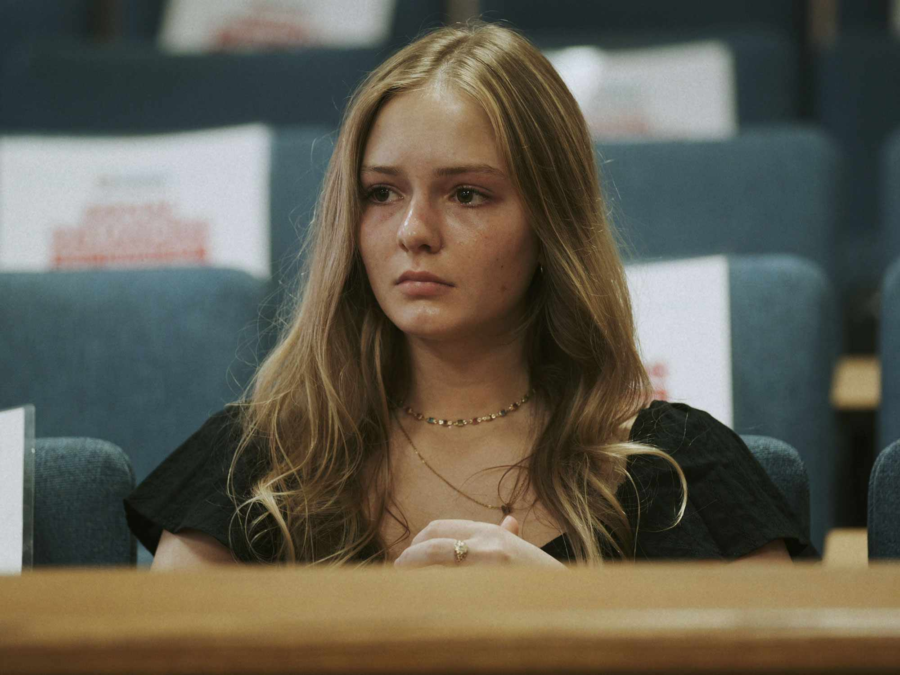The Take Care of Maya trial has captured national attention due to its dramatic intersection of healthcare, parental rights, and legal accountability. This high-profile case not only spotlights issues of child welfare and medical diagnoses but also raises critical questions about the role of healthcare providers, social services, and the justice system. As the trial unfolds, it continues to shed light on the complexities of advocating for a child’s health in the face of institutional challenges.
In this article, we will delve deep into the Take Care of Maya trial, examining its origins, the legal arguments on both sides, and the broader implications of this controversial case.
The Background of the Take Care of Maya Trial
The Take Care of Maya trial revolves around the tragic and complicated story of Maya Kowalski, a young girl whose life has been deeply impacted by medical and legal disputes. Maya was diagnosed with Complex Regional Pain Syndrome (CRPS), a chronic and debilitating pain condition that is difficult to treat and even harder to diagnose. This condition led her parents to seek aggressive treatments, some of which involved unconventional methods such as ketamine therapy.
The crux of the trial began when Maya’s mother, Beata Kowalski, brought her to Johns Hopkins All Children’s Hospital in Florida seeking treatment in 2016. What followed was a chain of events that would lead to a devastating family separation, accusations of medical child abuse, and Beata Kowalski’s untimely death by suicide. Maya was placed in state custody for months, while her parents were accused of fabricating or exaggerating her illness, a condition known as Munchausen syndrome by proxy.
Now, years later, the Kowalski family has brought a $220 million lawsuit against the hospital, claiming negligence and mistreatment during Maya’s care. The Take Care of Maya trial aims to determine whether the hospital acted appropriately in its response to Maya’s medical condition and the subsequent involvement of child protective services.
The Legal and Medical Complexities of the Take Care of Maya Trial
One of the reasons the Take Care of Maya trial has drawn such widespread attention is the complex interplay of legal and medical factors. At its core, the trial raises two key questions:
- Did the hospital act responsibly in reporting suspected medical child abuse?
- Were Maya’s rights, and those of her parents, violated in the process?
The Hospital’s Position
Johns Hopkins All Children’s Hospital maintains that its staff acted in accordance with legal and ethical obligations. Healthcare providers are mandated reporters, meaning they are legally required to alert authorities if they suspect abuse or neglect. The hospital argues that the aggressive treatments sought by Beata Kowalski, particularly the use of high-dose ketamine therapy, raised legitimate concerns about Maya’s welfare. The decision to involve child protective services, according to the hospital, was made in the interest of protecting Maya from potential harm.
The Kowalski Family’s Position
The Kowalski family, on the other hand, argues that the hospital’s actions were not only unjustified but also harmful. They claim that Beata Kowalski was a devoted mother who sought the best possible care for her daughter in the face of a rare and misunderstood medical condition. The family alleges that the hospital failed to properly investigate Maya’s diagnosis and instead rushed to judgment, tearing the family apart and leading to Beata’s tragic death.
This dichotomy of perspectives highlights the ethical dilemmas faced by healthcare providers and the potential consequences of their decisions.

The Emotional Toll of the Take Care of Maya Trial
At its heart, the Take Care of Maya trial is not just about legal arguments or medical ethics—it’s about a family’s heartbreaking journey through the healthcare and legal systems. The emotional toll on Maya, her father Jack, and their supporters cannot be overstated.
Maya’s testimony during the trial has been particularly impactful. Now a teenager, she has spoken openly about the trauma of being separated from her family and the ongoing pain of her medical condition. Her testimony has underscored the devastating personal costs of a system that sometimes fails to prioritize compassion and understanding.
For many, the Take Care of Maya trial serves as a stark reminder of the human consequences of bureaucratic decision-making, particularly when it comes to vulnerable children and families.
Broader Implications of the Take Care of Maya Trial
The Take Care of Maya trial has far-reaching implications that extend beyond the immediate parties involved. Here are some of the key issues this case brings to light:
1. The Challenges of Diagnosing Rare Medical Conditions
Maya’s diagnosis of CRPS is central to the trial, highlighting the difficulties faced by patients with rare or misunderstood conditions. Misdiagnoses, skepticism from healthcare providers, and disputes over treatment protocols are common in such cases, often leaving families in a precarious position. The trial has sparked conversations about the need for greater awareness and research into conditions like CRPS.
2. The Role of Mandated Reporting
While mandated reporting is designed to protect children from abuse, the Take Care of Maya trial raises questions about how these laws are applied. Critics argue that hospitals and child protective services sometimes act too hastily, potentially causing more harm than good. Finding the right balance between vigilance and caution is a critical challenge for the system moving forward.
3. The Impact of Family Separation
The trial also highlights the devastating consequences of family separation, particularly in cases involving medical disputes. Maya’s months-long separation from her parents had a profound impact on her emotional well-being, underscoring the need for more compassionate approaches to resolving such conflicts.
4. Accountability for Medical Institutions
At its core, the trial is about holding a major medical institution accountable for its actions. The Kowalski family’s lawsuit seeks not only financial compensation but also systemic changes to prevent similar tragedies in the future. If the court rules in favor of the family, it could set a precedent for how hospitals handle suspected cases of medical child abuse.
Public Reactions to the Take Care of Maya Trial
The Take Care of Maya trial has sparked widespread public debate, with many people taking to social media to express their support for the Kowalski family. Advocacy groups for rare diseases and parental rights have rallied around the case, using it as a platform to call for changes in how the healthcare and legal systems treat families in crisis.

On the other hand, some have defended the hospital’s actions, emphasizing the difficult decisions faced by healthcare providers when it comes to safeguarding children’s welfare. This divide in public opinion reflects the broader complexities of the case and the lack of easy answers.
Conclusion: The Legacy of the Take Care of Maya Trial
The Take Care of Maya trial is a case that will undoubtedly leave a lasting impact on both the medical and legal communities. At its core, it is a story of a family’s fight for justice and the systemic flaws that contributed to their suffering.
As the trial continues, it serves as a sobering reminder of the need for compassion, accountability, and nuanced decision-making in situations involving vulnerable children and their families. Whether the verdict ultimately favors the Kowalski family or the hospital, the lessons from this case will shape future discussions about medical ethics, parental rights, and the responsibilities of mandated reporters.
In the end, the Take Care of Maya trial is about more than just legal proceedings—it’s about ensuring that no family has to endure the pain and loss that the Kowalskis have faced. The hope is that this case will inspire meaningful reforms, paving the way for a more equitable and empathetic system for all.
